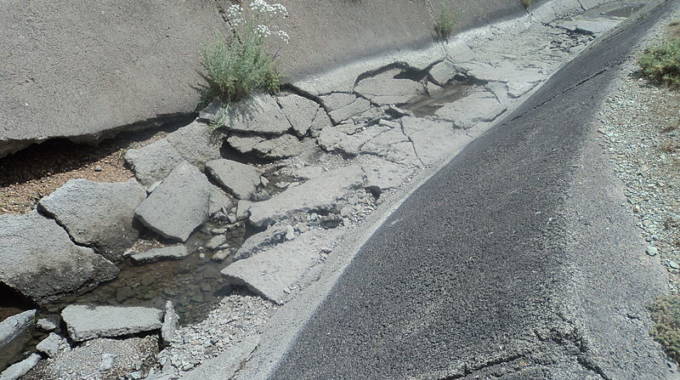
The ManicaPost

Samuel Kadungure
Senior Reporter
REHABILITATION of the 800 hectare Romsely Irrigation Scheme in the arid zone of Nzvimbe in Makoni South is expected to start in January 2022 as the Government finalises evaluation of submitted bids to select a competent contractor.
The rehabilitation project, reportedly funded to the tune of US$15 million, will be done in two phases; with the first phase of 500ha running between January and December 2022.
The second phase of 300ha will resume and be completed in 2023.
Romsely Irrigation Scheme is situated in the dry Nzvimbe area, synonymous with rich red and fertile black soils, and primed to be a key accelerator of Vision 2030 in pursuit of the related goals of food security, poverty alleviation and sustainable development in the arid constituency.
Improving agriculture and enhancing productivity through smallholder irrigation is one of the key strategies by Government to alleviate poverty and improve livelihoods of rural communities where the majority of the poor depend directly on rain-fed agriculture.
To attain Vision 2030, there is need to increase agriculture production and productivity; especially by smallholder farmers to ensure food and nutrition security and enhanced income.
Makoni South lies in arid Natural Region Five where rainfall is too erratic and unreliable for dryland farming.
This makes supplementary irrigation necessary for successful cropping.
The initiative to revive the scheme, abandoned in the early 1980s, will benefit more than 3 000 people, and serve as a mitigating measure against droughts and mid-season dry spells, while also enabling beneficiaries to grow high value crops that require a lot of water throughout the year and intensify production.
Romsely area is an old resettlement scheme started in the 1980s and has old canals that had been developed by the former white farmer who was drawing water from Mucheke River through a 22km canal and using the flood irrigation system.
The new facility will have two components — the infield crops and citrus fruit trees — to diversify and scale up sustainable food and nutritional security, income, opportunities for value addition and development of agro-business value chains in the area.
The thrust hinges on nutrition, income generation and rural agro-industry development to create a critical mass for local industrial beneficiation of both indigenous and exotic crops and fruits.
It is against that background that this project is being implemented to build resilience among rural farmers while increasing opportunities for value addition and the development of agro-business value chains.
Provincial Irrigation Engineer, Engineer Tendai Chimunhu, told The Manica Post on Wednesday that the tender was flighted, while site visits were done and bids submitted.
“Government is seized with the evaluation process to select a suitable contractor for the job and we are working hard to ensure that by January 2022 the contractor will be on the ground.
“Phase one, which has 500ha, should be through by December 2022 to pave way for the second phase of 300ha which should be completed in 2023,” said Engineer Chimunhu.
Engineer Chimunhu said the scope of work includes rehabilitation of the existing weir and 22km canal, reconstruction of four-night storage dams and development of the 800ha irrigation for field crop and citrus trees.
It is expected that the completion of the scheme will increase yields manifold, stabilise output, enable crop diversification, reduce risk and increase incomes and employment.
The scheme will have a multiplier effect on beneficiary incomes and contribute to food security and poverty alleviation.
Government’s objective to guarantee food security through increased crop production is now feasible following the allocation of US$15 million to rehabilitate the scheme.
Irrigation expansion by President Mnangagwa’s Government is crucial to the health of the agricultural industry as it improves the viability of farming enterprises, increases efficiency and economic viability of irrigation districts while contributing to the economic and social objectives of Manicaland Province.
There is need for Government and development agencies to capacitate irrigation schemes that are dysfunctional in Manicaland in order to boost production.
Major barriers to these schemes include poor infrastructure and soil fertility, poor access to implements, functioning markets and agricultural knowledge, which resulted in low yields, food insecurity and negative income.
Some irrigated land remains unused and marketing of produce is uncoordinated.



